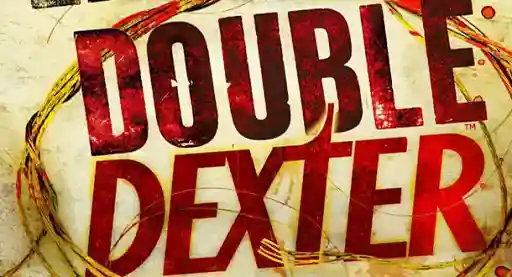Bookshots: Pumping new life into the corpse of the book review
Title:
Get In Trouble
Who wrote it?
Kelly Link, whose whimsical stories blend modern concerns of theme with fairy-tale elements, and explore unique worlds from story to story. She’s won numerous awards as can be seen at her official site.
Plot in a Box:
A collection of stories related by, and relatable to because of, their themes of youth, love, disappointment and hope. Often, however, they are entirely unrelated by mythos, world, or reality.
Invent a new title for this book:
Witches' Brews and A.I. Boyfriends
Read this if you liked:
Pretty Monsters by Kelly Link, Trigger Warning: Short Fictions and Disturbances by Neil Gaiman, The Doors of His Face, The Lamps of His Mouth by Roger Zelazny
Meet the book’s lead(s):
No dice. It’s a short story collection, but rest assured the many characters are well-drawn.
Said lead(s) would be portrayed in a movie by:
Same as above.
Setting: Would you want to live there?
Despite the stories’ myriad and sometimes fantastical settings, they’re peppered with references to reality TV, contemporary vampire and werewolf romances, and episodes of ‘Hoarders’. Somehow we feel like we already do live there.
What Was Your Favorite Sentence?
This collection of stories is less about the language, which is readable and unadorned, and more about concept, scope, and idea. And rightfully so. The sentences do an important job; they have to be stable to support the fantastic elements, serving as an expression of authority, and be simply humorous so we don’t get bogged down.
So there are two modes, apparently. Embodied or Spectral. Embodied is just, you know, the usual thing. "She waves a hand in the direction of her Vampire Boyfriend, Oliver. He waves back."
The Verdict:
Get In Trouble’s title comes from a line about a father who alternates between religious zeal and debauched binges on magic moonshine. What’s troublesome about the stories here, and troublesome in a damn good way, is that its readers aren’t too different from that father. We’re both zealously exploring its heavy themes while binging on its fantastical worlds and matter of fact presentation of myth, fairy-tale, fantasy and science fiction (take your pick).
The story in question is called “Summer People”, and there’s no better place to start, considering it won both an O. Henry and Shirley Jackson award. In it, one of the characters, Ophelia, describes the main character, Fran, and her life as being like a fairy tale. But there’s an important distinction to follow.
"I mean, people say something is like a fairy tale all the time,” Ophelia said. “And what they mean is somebody falls in love and gets married. Happy ever after. But that house, those foxes, it really is a fairy tale. Who are they? The summer people?"
This idea is the perfect place lens for this collection because it prepares us for stories in which, suddenly and with no attempt to explain, characters hear voices, end up in the lobby at a conference of real superheroes, or order their daughter's android a boyfriend, which are trending because they're werewolves, vampires, or ghosts (though, the ghost is hard to purchase because of a manufacturer recall). It’s crucial to note that this fantastic quality is taken for granted intentionally. It's the opposite of what Marquez says as he addresses The Paris Review, in The Art of Fiction No. 69.
For example, if you say that there are elephants flying in the sky, people are not going to believe you. But if you say that there are four hundred and twenty-five elephants flying in the sky, people will probably believe you.
Sure, Marquez was right about his own writing. But Link has purposefully not “realized” in the journalistic manner of Marquez, and through her skill we trust these stories' concerns on their own terms. We're even more satisfied when for all their strangeness the stories strike on what concerns us most in life, and what feels most real. In Get In Trouble, Kelly Link proves that there are all kinds of magic to be made. These nine moving stories are proof of the tricks up her sleeve.

About the author
Christopher David Rosales is the author of SILENCE THE BIRD, SILENCE THE KEEPER, which recently won the McNamara Grant and was short-listed for the Faulkner-Wisdom Award. Most recently his work is forthcoming in 5280: Denver's Magazine. Rosales is a Writer-In-Residence at Colorado Humanities Center for the Book, and a Professor at The University of Colorado at Boulder and Metro-State University, Denver. He is the Fiction Editor of SpringGun Press, and the Founding Instructor at The Boulder Writing Studio. Lindsey Clemons, at Larsen Pomada Literary Agency, represents his novels.








